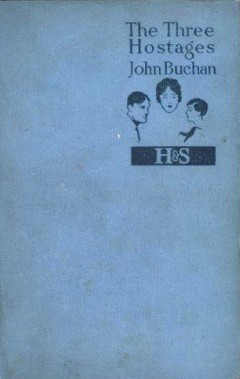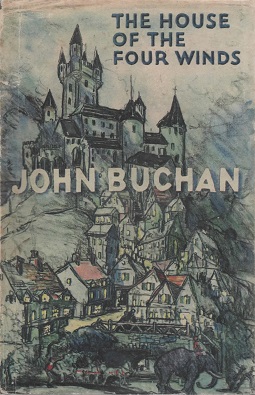
John Buchan, 1st Baron Tweedsmuir was a Scottish novelist, historian, and Unionist politician who served as Governor General of Canada, the 15th since Canadian Confederation.

The Female Man is a feminist science fiction novel by American writer Joanna Russ. It was originally written in 1970 and first published in 1975 by Bantam Books. Russ was an ardent feminist and challenged sexist views during the 1970s with her novels, short stories, and nonfiction works. These works include We Who Are About To..., "When It Changed", and What Are We Fighting For?: Sex, Race, Class, and the Future of Feminism.
Major-General Sir Richard Hannay, KCB, OBE, DSO, is a fictional character created by Scottish novelist John Buchan and further made popular by the 1935 Alfred Hitchcock film The 39 Steps, very loosely based on Buchan's 1915 novel of the same name. In his autobiography, Memory Hold-the-Door, Buchan suggests that the character is based, in part, on Edmund Ironside, from Edinburgh, a spy during the Second Boer War.

Mr Standfast is the third of five Richard Hannay novels by John Buchan, first published in 1919 by Hodder & Stoughton, London.

The Three Hostages is the fourth of five Richard Hannay novels by the Scottish author John Buchan, first published in 1924 by Hodder & Stoughton, London.
The Nero Wolfe stories are populated by a cast of supporting characters who help sustain the sense that each story takes place in familiar surroundings.

That Wilkin Boy is a comic book series published by Archie Comics about a teenage boy, Bingo Wilkin, who lives in Midville, next door to his girlfriend, Samantha Smythe. That Wilkin Boy debuted with issue 1 dated January 1969, and ran until issue 52 dated October 1982. The book, which spotlights Bingo's garage band the Bingoes, was released as Archie's more well-known title character had found real-world recording success with the release of The Archies' "Sugar, Sugar".

The Island of Sheep is a 1936 novel by the Scottish author John Buchan, the last of his novels to focus on his characters Richard Hannay and Sandy Arbuthnot. It was published in the United States under the title The Man from the Norlands.

John Macnab is a 1925 adventure novel by the Scottish author John Buchan.

The Courts of the Morning is a 1929 adventure novel by John Buchan, featuring his character Sandy Arbuthnot. The prologue is narrated by Richard Hannay, so the novel is sometimes included in Buchan's Hannay series. The action is set in Olifa, a fictional country on the west coast of South America.
The Power-House is a novel by John Buchan, a thriller set in London, England. It was written in 1913, when it was serialised in Blackwood's Magazine, and it was published in book form in 1916. The narrator is the barrister and Tory MP Edward Leithen, who features in a number of Buchan's novels. The urban setting contrasts with that of its sequel, John Macnab, which is set in the Scottish Highlands.

The House of the Four Winds is a 1935 adventure novel by the Scots author John Buchan. It is a Ruritanian romance, and the last of his three Dickson McCunn books. The novel is set in the fictional Central European country of Evallonia and opens two years after the events recounted in Castle Gay.
Sir Edward Leithen is a fictional character in several of John Buchan's novels: The Power-House, John Macnab, The Dancing Floor, The Gap in the Curtain and Sick Heart River. These were published over a number of years, the first in 1916, and the last in 1941, one year after Buchan's death. Leithen's name is borrowed from the Leithen Water, a tributary of the River Tweed, one of many references to the Scottish Borders in Buchan's novels.

Huntingtower is a 1922 novel by the Scottish author John Buchan, initially serialised in Popular Magazine between August and September 1921. It is the first of his three Dickson McCunn books, the action taking place in the district of Carrick in Galloway, Scotland.
The Three Hostages was a British television series which aired on the BBC in 1952. It was an adaptation of the 1924 novel The Three Hostages by John Buchan featuring his character Richard Hannay who is played by Patrick Barr. It consisted of six 30 minutes episodes. The BBC adapted the story again in 1977 as a film The Three Hostages with Barry Foster as Hannay. Broadcast live before telerecording was utilised in the UK, the series is missing, believed lost.
John Palliser-Yeates was a fictional character created by John Buchan. He appeared in several Buchan novels, notably John Macnab.
Charles Lamancha is a fictional character who appears in several novels by John Buchan.

The Half-Hearted is a 1900 novel of romance and adventure by the Scottish author John Buchan. It was Buchan's first novel in a modern setting and was written when he was 24 while working for an All-Souls fellowship and reading for the bar.
Roylance is a surname. Notable people with the surname include:










